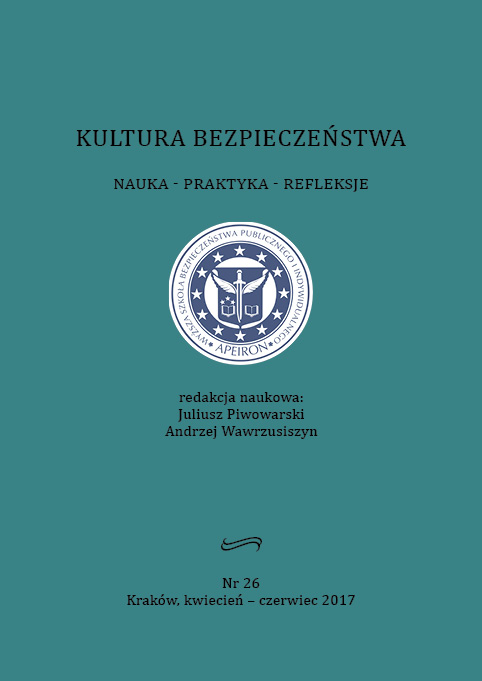Reglamentacja działalności w zakresie prowadzenia gier na automatach w świetle swobody działalności gospodarczej – Rozważania delege lata i de lege ferenda
Regulation of economic activities in the area of gaming machines in the light of the freedom of economic activity – Reflections de lege lata and de lege ferenda
Author(s): Michał HejbudzkiSubject(s): Constitutional Law, Substance abuse and addiction, Economic development, Law on Economics
Published by: Wyższa Szkoła Bezpieczeństwa Publicznego i Indywidualnego “Apeiron” w Krakowie
Keywords: freedom of economic activity; gambling; gaming machines; licence; permit; the state monopoly;
Summary/Abstract: The subject of studies focuses on the issue of whether the introduction of an absolute prohibition on gaming machines outside casinos actually falls within the legal conditions allowing restriction of the principle of freedom of economic activity and, therefore, whether banning gaming machines outside casinos is necessary for the protection of “important public interest “within the meaning of Article 20 and 22 of the Constitution, as well as whether it is appropriate to introduce a state monopoly on this activity. The analysis of the issues leads to the conclusion that the gaming sector should be subject to inspection and supervision of the authorities of the state and that the public authority should protect citizens against the risk of gambling addiction. The introduction of a ban on gaming machines outside casinos resulted from the need perceived by the legislator to introduce comprehensive changes in regulations governing the area of the dynamically developing gambling market since socially adverse changes and irregularities occurred in this market. A general clause of an important public interest adopted in Article 22 of the Constitution allows to recognise the restriction on the freedom of economic activity consisting of a permission to operate gaming machines only in casinos constitutionally acceptable, as it is necessary for security, public order, health, freedom and public morality in a democratic state. Existing restrictions in this regard meet the constitutional requirement of proportionality, i.e. applied measures lead to the desired objectives, are necessary to protect the interests which they are linked to and the effects of the restrictions are proportionate to the burdens imposed on the citizen. However, the proposals to restore the opportunities for gaming machines outside casinos are incomprehensible. The introduction of a state monopoly on operating gaming machines will interfere with the principle of freedom of economic activity because there are no rational reasons for limiting entrepreneurs in this field of economic activity while a legal base to broad access to gaming machines will be created. Adoption of the proposed amendments will reveal the primacy of the fiscal interests of the state over values such as public health. At the same time it will expose the weakness of the State, which not being able to eliminate the so-called “grey economy” by any other means, decides to join the circle of beneficiaries of the activity sanctioning it legally and ignoring the well-being of citizens.
Journal: Kultura Bezpieczeństwa. Nauka-Praktyka-Refleksje
- Issue Year: 2017
- Issue No: 26
- Page Range: 137-155
- Page Count: 19
- Language: Polish

